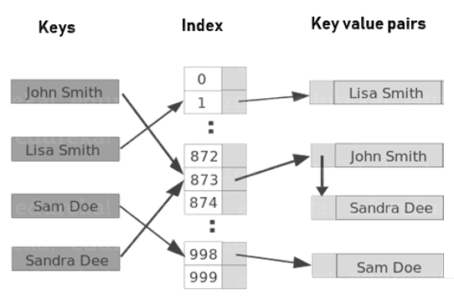Checking Out the Advantages of Immutable Strings in Modern Programs Paradigms
In the world of modern shows paradigms, the idea of immutable strings stands as a foundation of robust software advancement. By adopting unalterable strings, programmers can ensure enhanced information honesty, boosted string safety and security, simplified debugging processes, raised security steps, and reliable efficiency optimization.
Boosted Data Honesty

By protecting against the adjustment of string things, immutability eliminates the threat of unintentional changes to the information they hold. This not just improves the safety of the information yet additionally enhances the reliability of the code that depends on these strings.
Immutability additionally supports more secure multithreading settings, as concurrent accessibility to unalterable strings does not posture the danger of data corruption with synchronised modifications. This home simplifies the procedure of handling strings in parallel programs circumstances.
Fundamentally, immutability serves as a safety guard around the data stored within strings, boosting their honesty by making certain that as soon as defined, their values stay the same throughout the program's execution.

Enhanced String Safety
Immutable strings enhance the thread security of programs by guaranteeing that once a string object is created, its value can not be modified. This residential or commercial property removes the danger of concurrent strings trying to change the very same string concurrently, which could lead to information corruption or irregular states in the program - Why are strings immutable in Java?. In a multi-threaded environment, where numerous strings accessibility and adjust data all at once, the immutability of strings gives a level of safety by assuring that the data continues to be unmodified throughout its lifecycle
Streamlined Debugging Procedures
Offered the enhanced thread safety and security helped with by unalterable strings, a substantial advantage develops in the realm of streamlined debugging processes. Immutable strings, when produced, can not be changed, making it less complicated to trace the flow of information and recognize the source of pests in a program. This immutability makes certain that strings continue to be regular throughout the execution of the program, lowering the chance of unanticipated adjustments that might result in mistakes.
When debugging with mutable strings, developers commonly encounter concerns where a string's value is customized accidentally, making it testing to identify the source of a pest. However, with immutable strings, the information stays unmodified, allowing developers to focus on analyzing the actual reasoning of the code as opposed to tracking down where and when a string was modified inaccurately.
Additionally, unalterable strings streamline the debugging process by allowing much easier reproduction of bugs. Considering that unalterable strings do not alter state, programmers can recreate and research insects more efficiently, causing quicker recognition and resolution of issues within the codebase. This streamlined debugging workflow ultimately adds to greater software program high quality and improved total growth efficiency.

Enhanced Protection Measures
Enhancing data defense and fortifying system stability, the utilization of immutable strings in read more software program applications contributes considerably to enhanced security actions. Unalterable strings additionally play a vital function in stopping usual safety susceptabilities such as barrier overflows and SQL injection strikes, as efforts to adjust string information at runtime are inherently restricted.
Furthermore, the immutability of strings boosts the predictability of program actions, making it much easier to verify inputs and stop unforeseen modifications that could jeopardize safety and security. This predictability streamlines the process of auditing and validating code, enabling developers to identify potential safety and security loopholes extra efficiently. Generally, incorporating immutable strings right into software program advancement techniques not only enhances the robustness and integrity of applications but also strengthens their strength versus safety and security risks.
Effective Efficiency Optimization
When dealing with mutable strings, procedures like concatenation or substring production often result in the creation of brand-new string things, leading to memory expenses and raised processing time. By enabling strings to continue to be consistent and unchangeable, unalterable strings facilitate far better memory monitoring and caching possibilities, eventually boosting the overall performance of the software.
Because immutable strings can not be modified once produced, they can be shared throughout threads without the risk of unanticipated changes, minimizing the demand for synchronization devices and boosting concurrency. Unalterable strings streamline debugging processes as designers can trust that a string's value will certainly continue to be consistent throughout the program's execution, removing prospective errors created by mutable state adjustments.
Conclusion
Finally, the benefits of utilizing unalterable strings in contemporary programming paradigms can not be overemphasized. Improved data honesty, improved thread security, simplified debugging processes, boosted protection steps, and efficient performance optimization all add to the overall performance of shows tasks. By including immutable strings right into shows methods, programmers can take advantage of a much more robust and trusted codebase.
Immutability, a crucial attribute of find out strings in shows languages such as Java and Python, ensures that when a string item is produced, it can not be altered his explanation or modified.Unalterable strings enhance the thread safety and security of programs by ensuring that when a string item is created, its value can not be changed. Immutable strings likewise play a vital function in protecting against usual protection vulnerabilities such as barrier overflows and SQL injection strikes, as attempts to control string information at runtime are naturally restricted.
By allowing strings to stay stable and constant, immutable strings facilitate much better memory monitoring and caching opportunities, eventually boosting the total performance of the software program.
Immutable strings simplify debugging procedures as programmers can rely on that a string's worth will certainly continue to be regular throughout the program's implementation, eliminating potential mistakes created by mutable state adjustments.
Comments on “Why Are Strings Immutable in Java? Protection and Performance Perks”